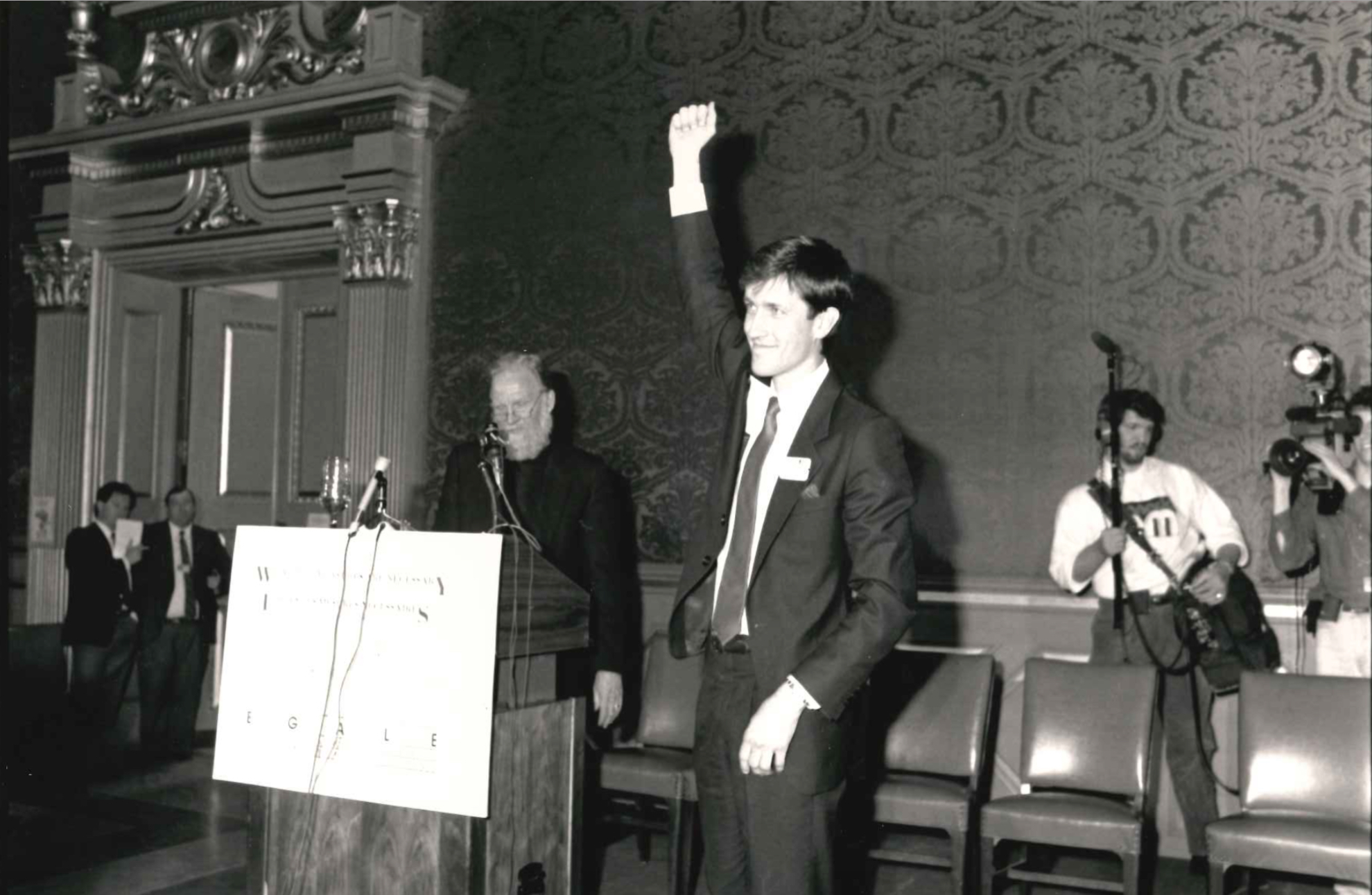On April 27, 1992, Svend Robinson, the NDP MP for Burnaby-Kingsway and Canada’s first openly gay parliamentarian, rose on the floor of the House of Commons to ask about the historical purges of gay men and women from the public service.
“Will the prime minister now agree to order an independent public inquiry into these shameful practices which in at least one instance that I know of led to a suicide?”
Prime Minister Brian Mulroney responded definitively.
“This would appear to be one of the great outrages and violations of fundamental human liberty that one would have seen for an extended period of time,” he said. Mulroney said that he had instructed the Clerk of the Privy Council to examine ways to deal with the issue.
Nothing ever came of it, and just a little over a year later, Mulroney was dramatically swept out of office.
But 25 years after his exchange with Mulroney, Svend Robinson sat in the House of Commons, this time in the gallery, and watched a different prime minister follow through on that promise.
“It was a mix of emotions obviously,” Robinson tells Xtra. “Having lived through this period when many of these people were persecuted and criminalized, I couldn’t help but thinking back on the many people who didn’t live to hear this apology.”
But the historic importance of hearing a prime minister apologize for the many wrongs done to the LGBT community in Canada was not lost on Robinson.
“I never thought I would see the day that all members of Parliament, including Conservatives, would rise in the House and acknowledge this was terribly wrong and should never happen again,” he says.
First elected to the House of Commons in 1979, Robinson became the most visible face for Canada’s gay rights movement when he came out in 1988. Even before his exchange with Mulroney, Robinson had been grilling the heads of the Canadian Armed Forces and the RCMP about homophobia within the security state. But his calls for action were largely ignored.
It wasn’t until this year, when Robinson was asked to sit on the advisory committee that crafted the apology, that he got to see some level of acknowledgement for what the Canadian state had done.
Robinson gives much credit to Prime Minister Justin Trudeau for actually giving an apology, but he’s careful to remind that the Liberal Party historically was a laggard on LGBT issues.
“The Liberals had to be dragged kicking and screaming every step of the way,” he says, noting that Liberal governments have generally waited for the courts to order them to amend homophobic laws.
For the last decade, Robinson has lived in Switzerland, where he currently works with the Global Fund to Fight AIDS, Tuberculosis and Malaria. And despite his new home, he’s adamant that Canada still has much to do to rectify past wrongs.
He’s calling on the government to release all documents related to the purges, many of which have never been seen by the public or researchers.
“If you’re serious about telling the truth and memorializing, the single most important step is full and unfettered access to those documents — no more national security exceptions,” he says. “The only restriction to that, obviously, has got to be respect for personal confidentiality.”
He also wants to see the government follow through on its promises to equalize the age of consent and ditch the gay blood ban.
But for a man who served in the House of Commons for 25 years, last month’s apology was still a singular moment, despite the work that’s left to be done.
“It was one of those very rare moments in Canadian parliamentary history — I really think Parliament was at its best,” he says.

 Why you can trust Xtra
Why you can trust Xtra


